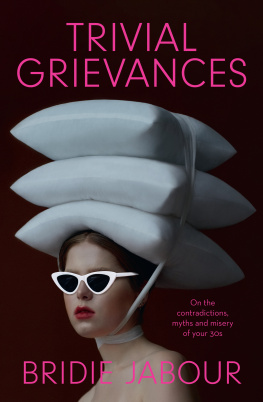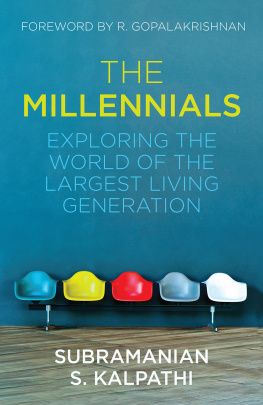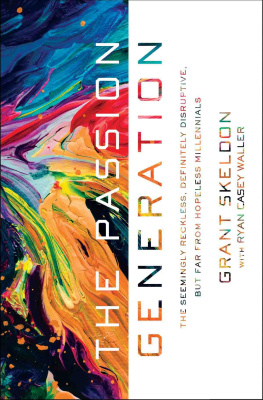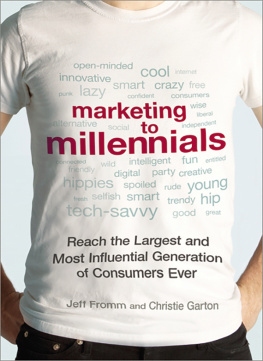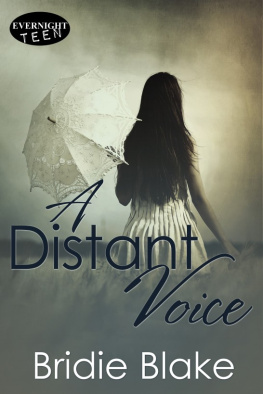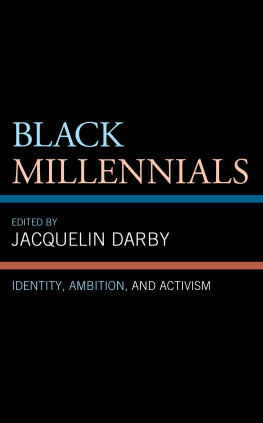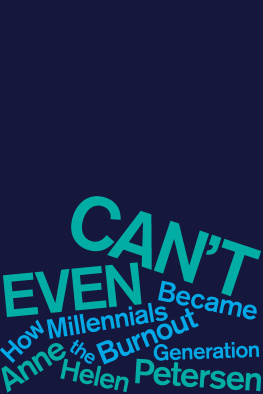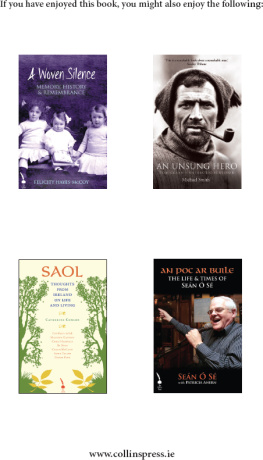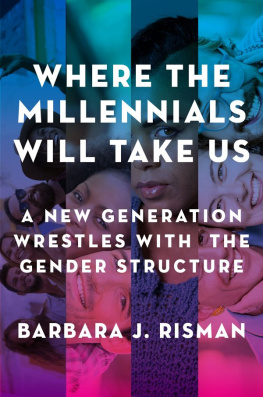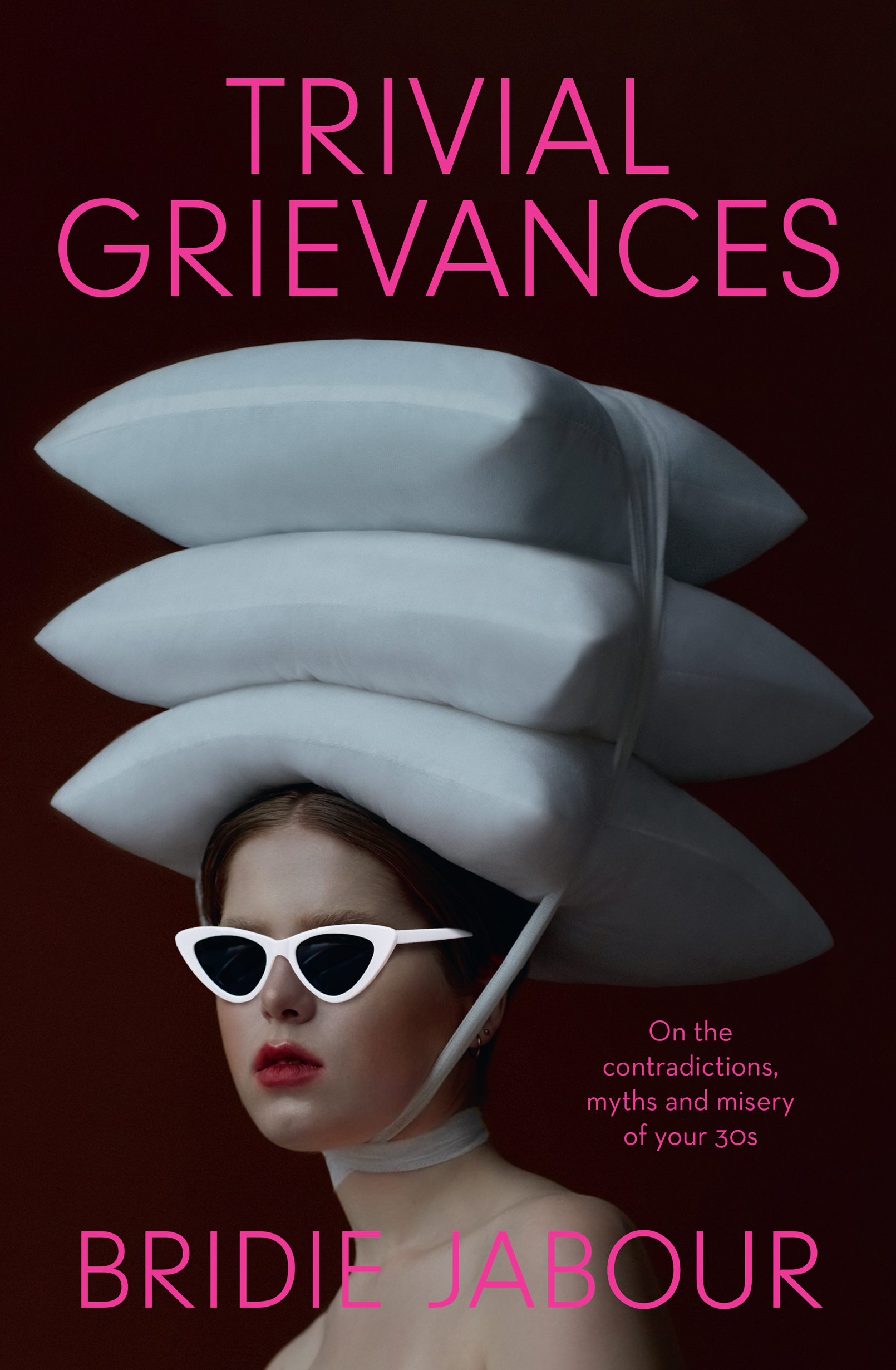For Philomena and Christopher
you were great parents. Still are, really.
And for Corah, my fellow smart girl.
Contents
- Whatever the work is, do it well not for the boss but for yourself.
- You make the job; it doesnt make you.
- Your real life is with us, your family.
- You are not the work you do; you are the person you are.
Toni Morrison
You are past your prime.
My Ma
I was recently at dinner with a group of loose acquaintances of a similar age to celebrate the birthday of a woman I had met ten years earlier at university. She was turning 31.
Also at the table were a divorcee, a single woman, a mother, a woman who had been dating her boyfriend for a few months, and a newlywed. The mood was flat.
The divorcee had been dating a new man for two years and she didnt know where it was going. He doesnt understand the fertility issues I have. He says he wants a baby, but I try to talk to him about when and he says we dont have to talk about that yet.
The single woman had gone to a caf that morning to have breakfast with a guy she met on a dating app. He just didnt show up. I wasnt even that excited to meet him, but he couldnt even be bothered showing up. Breakfast was his idea too. Its always something. I dont even really want a boyfriend, but what else should I be doing with my time?
The mothers lament was a classic too. She had already drunk three glasses of wine to most of the tables one. I didnt appreciate what I had when I had it the freedom, the lack of direction. I actually just want my lack of structure back. I dont think I thought enough about what having a child was going to be like.
The woman with the new boyfriend began talking about work. I started this job because I thought it was a good opportunity, but now this is my actual job, not just a stepping stone to something else.
The newlywed described her wedding as an anticlimax. I had been looking forward to it for so long! And now its done, I dont know what I should look forward to next. My job has become so uninteresting; it feels like everything has become so uninteresting.
Different miseries, to be sure so different it was actually barely a coherent conversation, more just a series of monologues. But I had met this group of women a few times over the past year, and they were not like this 12 months ago.
Turning 30 had been such a novelty. It was like we were doing it for a laugh look at us pretending to have a milestone birthday, look at us with our gold 30 balloons and our grown-up parties in proper venues rather than in our backyards. We were parroting what we thought people should say at age 30, with a nod and a wink. In our hearts, however, we werent 30. We certainly didnt feel 30. To us, 30 was a lark.
The realisation that time was indeed passing was a slow one. Did it matter you had spent the weekend with your nose hovering over a $10 note? Did it matter this relationship you were in was just fine? Did it matter that youd turned down that job because it was in Canberra (yuck)?
Well, yes. It mattered. Every evening spent scrolling, every deadline missed, the texts not returned, the money blown. Its all been adding up to something. Your life.
At 31, I had been in a great new job for more than a year. I had published my novel 18 months earlier and given birth to my first baby just before that. Yet I had been experiencing a certain kind of tedium for a little while.
I had thought my dissatisfaction was perhaps a symptom of my brattiness. There had been no parties in my honour lately, no announcements to make with a satisfied air of self-deprecation (some personal news). Intellectually, I knew I was not special, but in my heart I still loved the applause. I wondered if maybe I was experiencing depression for the first time in my life.
Then I thought it was more likely my feet were getting a bit itchy.
Entering my 30s I was a mother, had a great job, had even published a book. What more could I want? But this gnawing feeling continued to grow. Couldnt I be doing more? Should I have done something different instead? Like become an astronaut? I felt petulant, ungrateful.
But when I finally lifted up my head and looked around, I realised I wasnt the only one. Surveying people of a similar age revealed I wasnt just being a brat. Everyone seemed to be struck down with this same malaise. Whether they were my close friends or acquaintances, lived in another hemisphere or had never left the state, every 31-year-old I spoke to seemed to be in a state of ennui.
I wrote about it for the Guardian. The article, The millennials at 31: Welcome to the age of misery, was viewed more than half a million times. The response was like a tsunami of discontent.
During my 30s and now I have to endure second thoughts about everything; questions such as if it could be better if I had made a different choice? or if I could do anything to change it, and these thoughts are beyond annoying yet very addictive... at least your article made me feel not special; For some strange reason I thought I was the only one on [sic] misery, a man wrote to me from California.
From a woman in Australia: I have three children 31, 34 and 35. None of them own a home or have children at least yet. They are all in good jobs but I see stresses I never even realised existed when I was their age. Life is more complicated and continuity is less assured than it was.
One man simply said: A PATHETIC REPORTER WRITING ABOUT A PATHETIC GENERATION FFS!
A woman in England told me she and her friends had been talking about the piece for days. OMG you reached into my brain and put everything Ive been struggling with the last few months in writing, she said.
Were not the first cohort to experience a crisis. To experience the passing of time. And by passing of time, I mean the dawning realisation that time is finite, and we might have already wasted a lot. We used to have time to burn. But it was a late blooming into misery.
While Gen Xers and the boomers before us had these realisations by 25, for millennials the prolonged adolescence that was our 20s had delayed this type of self-reflection. And the hangover seemed more severe.
People who have spent years striving and hustling are suddenly questioning it all. If they are not happy being defined by their job, then what do they want to be defined by? Friends? Family? Apartment? Character? A job seems the easiest when you really start grappling with it. You dont have to like the person you are if you are defined by your job. Of course, your job is also never going to love you back.
It is an old compulsion to try to impose a narrative on our lives, especially when looking for meaning in our existence. But life does have a natural progression, a natural flow that millennials ought to have simply participated in, and many feel its not flowing as it should. Many felt there were certain things that should have fallen into place by their 30s. Namely: partner, shelter, job and probably children. Yet there have never been more single people in their 30s globally, theres a housing affordability crisis in pretty much every western country, and in many industries, the career progression that existed for many decades has simply disappeared.
What was happening was a good old-fashioned identity crisis. But an identity crisis in a unique set of social and economic circumstances. Precarious work, delayed baby-making, rising singledom, a heating planet, loss of religion and increased unstable housing mean this generation is facing old problems who am I? in a different world. And if that werent enough, we now have to contend with a pandemic placing radical restrictions on modern life.

